#queer as folk 1999
Text
Everyone say thank you Russell T Davies for introducing the wider television watching British public to rimming in 1999 and then heavily implying bisexuality is a natural evolution of current human sexuality in 2005 and then making a show where the entire main cast kisses someone of the same gender in 2006. Doing it like no other
#queer as folk#queer as folk uk#queer as folk 1999#qaf#qaf uk#qaf 1999#captain Jack hardness#torchwood#russell t davies#rtd
478 notes
·
View notes
Text
Gay/lesbian media from the 1980s to early 2000s is sooo good but you always have to overlook the blatent biphobia and transphobia 😭😭😭
#currently watching queer as folk (american version from 1999) and just discovered the 'lesbian code' by alix dobkin#they were so unapologetic about being queer but ughhhh#i hate it
2 notes
·
View notes
Note
Hello Neil,
thank you for so much for season 2! It was beautiful and felt delightfully Pratchett-esque at some points.
I have a feeling that in the few years between GO 1 and 2 there has been a seismic shift in LGBTQ+ content in mainstream media, lifting it out of the subtext. Do you think that even a few years ago you would have been able to write and film GO2 the way you did? You insinuated that you and Terry already talked about it in 2006 and I cannot believe that an explicit, undeniable romance would have been possible to make with a big publisher or studio back then.
I don't want to sound patronizing or dismissive. I was given a GLAAD award a quarter of a century ago, in 1997, for writing stories for mainstream publishers about gay characters (in that case for Death: The Time of Your Life). These were the same characters comics and stories I was writing when Terry and I were first writing Good Omens in 1989, which was only a decade before Russell T Davies' first season of Queer as Folk launched on UK television in 1999.
I was very happy that the story of Salim and the Djinn in American Gods (published in 2001) was filmed as written in the first season of the American Gods TV show (shot in 2016 and aired in 2017 before we even shot Good Omens Season 1) (and got its own GLAAD love).
So from my perspective this is the same stuff I've been doing for the last 35 years. I haven't seen a seismic shift. I made the Season 1 I wanted to make. I made the Season 2 I wanted to make.
2K notes
·
View notes
Text
Trans Horror Podcasts
My post about trans horror books last year was much more popular than I expected, and since I've recently fallen in love with fiction podcasts and audio dramas, I thought I'd make a post about trans horror podcasts as well.
If you like trans horror, please give these a try - especially if you enjoy listening to audiobooks!
Hello From The Hallowoods:
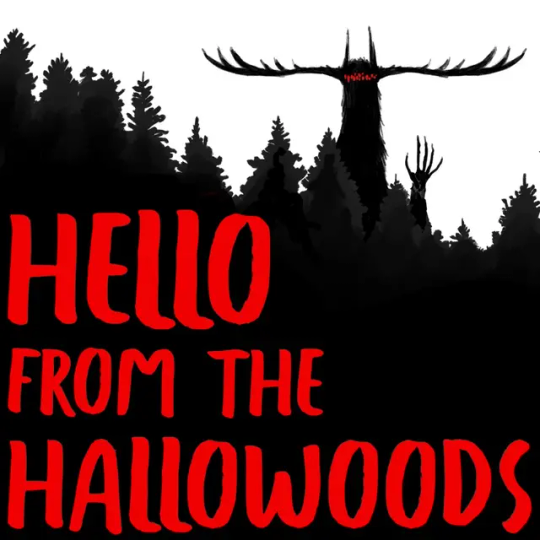
Come walk between the black pines!
In this award-winning queer fiction podcast, an eldritch narrator follows the increasingly connected residents of the forest at the end of the world.
It's a bittersweet story that explores queer identity, horror genre tropes, and finding hope in humanity's last moments.
Hello From The Hallowoods is my absolute favorite podcast! If you only listen to one podcast from this list, please make it this one - it's so beautifully written and super queer! Also: season 4 starts today!
Trans main characters include:
our nonbinary eye-affiliated podcast host
a nonbinary "Frankenstein's creature"
a transmasc ghost
a genderfluid storm witch
a trans woman who can visit other people's dreams
multiple characters using neopronouns
Camp Here & There:
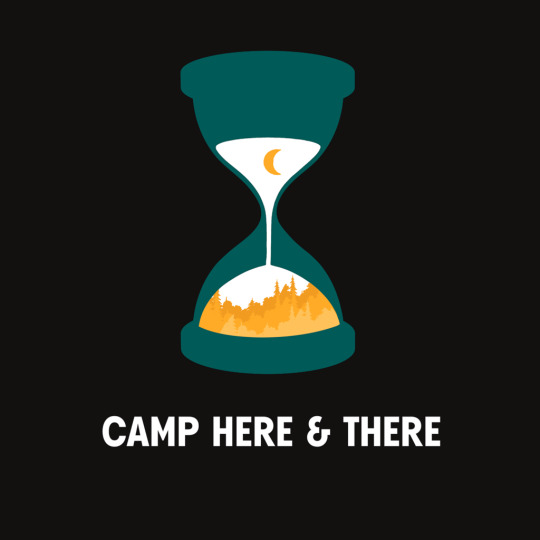
Good morning, campers!
Camp Here & There is a weekly horror comedy podcast tuned in to the loudspeakers of a small midwestern sleepaway camp plagued by supernatural terrors and natural disasters. Sydney Sargent, resident camp nurse, cheerfully reports on all the terror we must face with a big smile.
Let’s hope there’s nothing weird about that!
Sydney is a trans man.
Dos: After You:
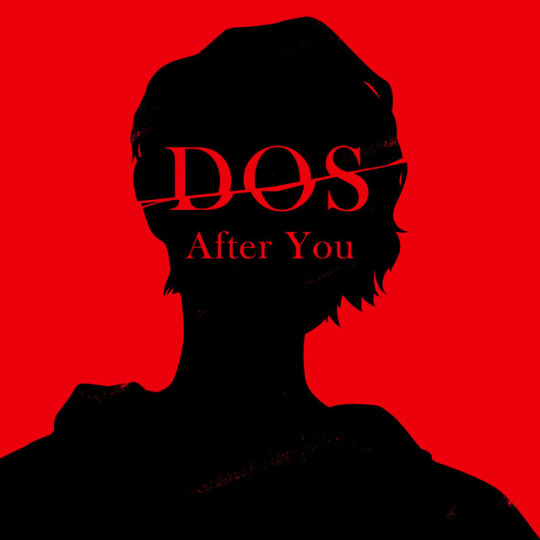
Things have changed. Deck has fallen in love with someone who isn't human, and leaves a hungry house behind to see him again. Will he be waiting for you? The world has changed… but what about him?
Dos: After You is a queer urban fantasy/horror audiodrama available in both English & Spanish
Deck is a trans man.
Jar of Rebuke:
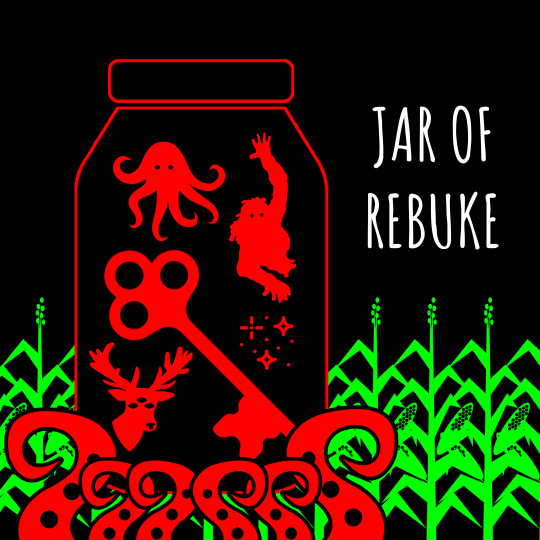
Follow Dr. Jared Hel's journey as he works to re-discover his forgotten past and finds his place within the small Indiana farm town of Wichton and the cryptozoological organization he works for called 'The Enclosure'.
These audio journals, and other recordings, dive deep into Midwestern US cryptids and folklore while also telling a mystery about identity, queerness, neurodivergence, and community.
Jared is nonbinary.
Spirit Box Radio:
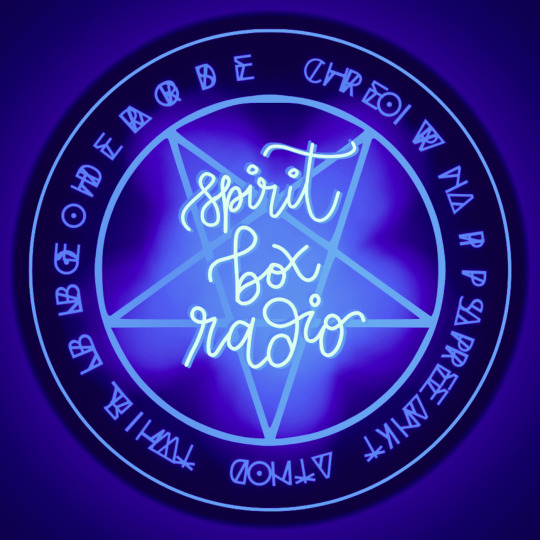
Spirit Box Radio is an award winning, horror audio drama podcast about a radio show for enthusiasts of all things arcane.
Follow Sam Enfield a former postboy with no experience in the arcane arts, who finds themselves forced to take over running the show, following the disappearance of the previous host.
Sam soon discovers there are more than ghosts haunting the show, and finds himself amidst a mystery which threatens everything he knows about the world beyond his tiny basement broadcast studio, and maybe even himself.
Sam is a trans man.
The Silt Verses:
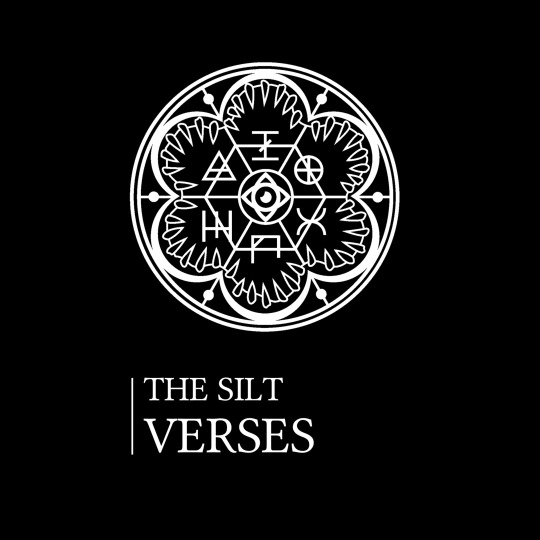
Carpenter and Faulkner, two worshippers of an outlawed god, travel up the length of their deity’s great black river, searching for holy revelations amongst the reeds and the wetlands.
As their pilgrimage lengthens and the river’s mysteries deepen, the two acolytes find themselves under threat from a police manhunt, but also come into conflict with the weirder gods that have flourished in these forgotten rural territories.
This is a world where divine intervention takes place through prayer-markings scratched into stumping-posts, and offerings are left squirming to die in the flats of the delta.
This is a world of ritual, and hidden language, and sacrifice.
This is folk horror, and fantasy, and a dark road trip into the depths of unusual faith.
Faulkner is a trans man.
The Magnus Protocol:

The Magnus Archives 2: The Magnus Protocol is the prequel/sequel/”sidequel” to the internationally renowned Magnus Archives podcast.
The Magnus Institute was an organisation dedicated to academic research into the esoteric and the paranormal, based out of Manchester, England. It burned to the ground in 1999. There were no survivors. Now, almost 25 years later, Alice and Sam, a pair of low-level civil service workers at the underfunded Office of Incident Assessment and Response, have stumbled across its legacy. A legacy that will put them in grave danger.
If this intrigues you then it is our pleasure to welcome you to the Office of Incident, Assessment and Response. Make sure you pick up your badge at desk and report to your line manager before sitting down. Oh and stay away from I.T., seriously.
I'm not sure if Alice is canonically trans, but her voice actress is a trans woman.
#hello from the hallowoods#hfth#camp here & there#camp here and there#chnt#dos: after you#jar of rebuke#the magnus protocol#tmagp#spirit box radio#the silt verses#tsv#nonbinary#genderfluid#transmasc#transfem#trans book of the day#trans books#queer books#bookblr#booklr#horror podcast#horror podcasts#queer horror podcast#queer horror podcasts#trans horror podcast#trans horror podcasts#trans horror#long post
542 notes
·
View notes
Photo

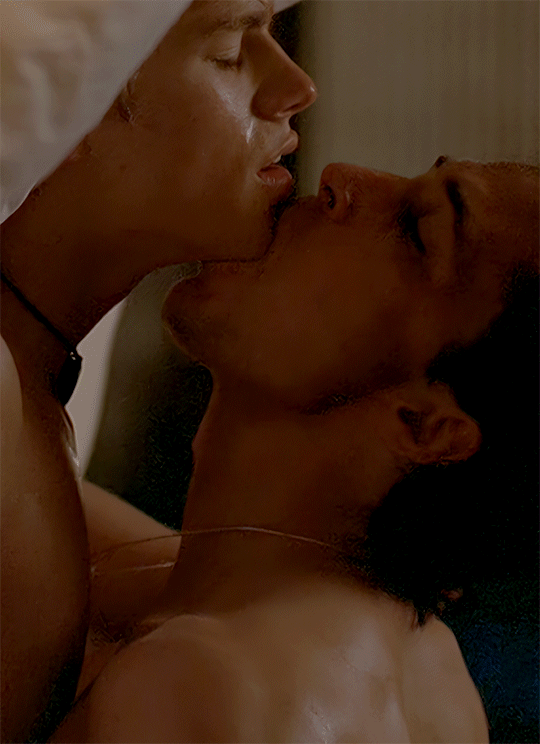
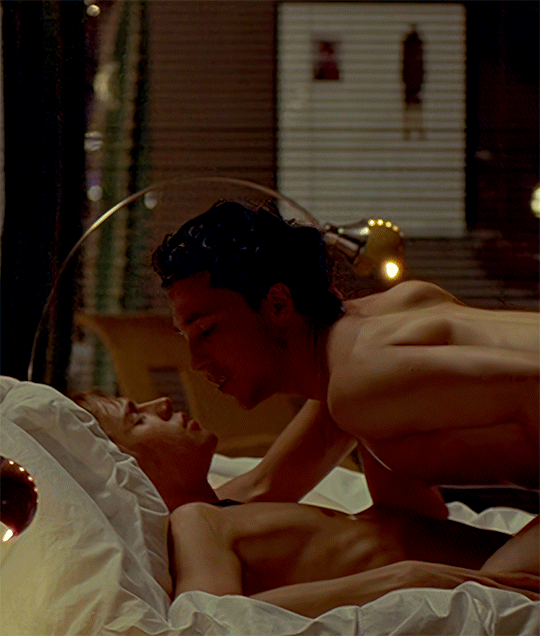
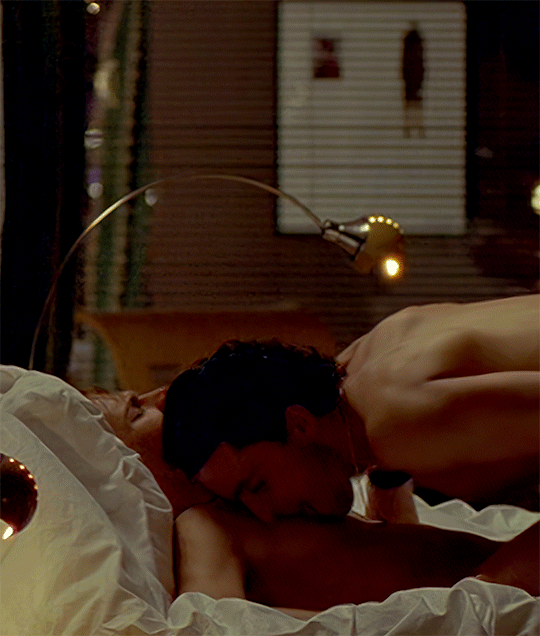
Aidan Gillen & Charlie Hunnam
QUEER AS FOLK UK (1999)
#guy Ritchie knew of this scene when he cast Aidan to knight Charlie in an intimate scene lmao?#charlie hunnam#aidan gillen#queer as folk#lgbtedit#qafedit#qaf uk#gay#lgbt#gay couple#kiss#lgbtq+#romancegifs#queer media#tvedit#happy pride 🌈#pride 2022#couple#intimacy#affection#longing#desire#amor#passion#romantic#queer
6K notes
·
View notes
Text
🏳️🌈Question I couldn’t find a good response to when searching…do people still use “family” to refer to their fellow queers? Is this an old thing? Was it ever a widespread thing or was this specific to who I was around? Is it still a widespread thing now, and I just don’t hear it anymore in my circles?
1999-2005, back when I was first becoming exposed to true queer community (as opposed to knowing individual lesbian or gay folks, the only variety of LGBTQAI+ people I had met to that point) everyone would be like, “so-and-so is family.” Stuff like, “hit up that business, the owner is family.” Or “yeah you’d be fine w/ PDA at that bar. It’s not a gay bar but most of the staff is family.” Or we’d like run into a professional acquaintance and their crew at Indy Pride, get all excited and say to our crew later, “that’s Blah Blah from work! I didn’t know they’re family.”
This was all when I lived in Indianapolis. My queer elders back then were a few lesbians (very close friend’s mom and her roommates and friends) who I’ve since lost touch w/ (outside FB) who are like 55-65 now and they said this all. the. time. So it became how me and my young queer friends back then talked, too. But I never hear it now.
I haven’t thought about this in years and it was so endearing and lovely….maybe I’ll bring it back 😂 I had some major life changes since then (moved to Austin in ‘09 and built a new network where I’m now on the older side of the queers I generally hang with) so I don’t know if this is location or generationally influenced (it’s generally safer to talk plainly now vs. then, etc.)
I’m just curious to know if other folks say this or used to say it.
#queer stuff#pride#queer community#lgbtq community#warning: I am in recovery from an outpatient surgery (that went well) so I’m gonna be even more writey than usual as I sit around my house
1K notes
·
View notes
Text
When people stumble over their pronouns, stammer, blush, or apologize in embarrassment, I often think of Riki Anne Wilchins' description of her friend Holly Boswell:
"Holly is a delicate Southern belle of long acquaintance ....S/he has tender features, long, wavy blonde hair, a soft Carolina accent, a delicate feminine bosom, and no interest in surgery. Holly lives as an open transgendered mother of two in Asheville, North Carolina. Her comforting advice to confused citizens struggling with whether to use Sir or Madam is, 'Don't give it a second thought. You don't have a pronoun yet for me.’” ...
...[T]o answer the homophobes becomes easy, those folks who want to dehumanize, erase, make invisible the lives of butch dykes and nellie fags. We shrug. We laugh. We tell them: your definitions of woman and man suck. We tell them: your binary stinks.
We say: here we are in all our glory — male, female, intersex, trans, butch, nellie, studly, femme, king, androgynous, queen, some of us carving out new ways of being women, others of us new ways of being men, and still others new ways of being something else entirely. You don't have pronouns yet for us.
- Eli Clare in Exile & Pride: Disability, Queerness and Liberation (1999)
948 notes
·
View notes
Text

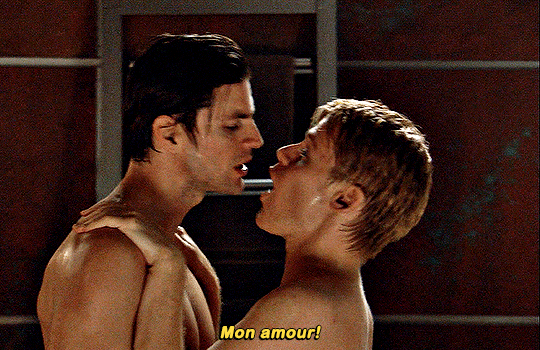
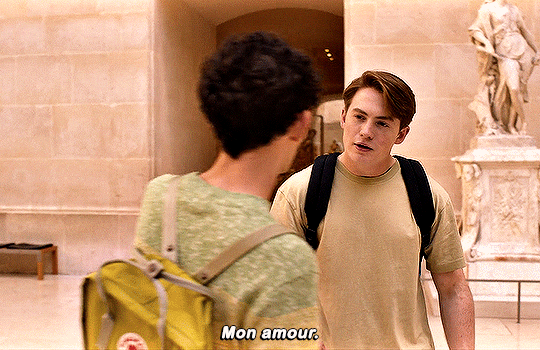
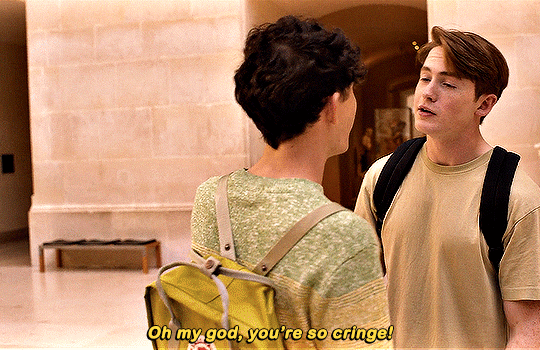

QUEER AS FOLK (1999-2005)
HEARTSTOPPER (2022-)
#heartstopper#queer as folk#heartstopperedit#qafedit#queerasfolkedit#tvedit#lgbtq#noalook#userlauraj#userdorksinlove#userkitkat#alielook#userbbelcher#cinematv#filmtvdaily#usersource#dailyflicks#heartstopper spoilers#heartstoppercentral#*#the reaction i had to this was not normal#i just?????#also i know that barely anyone will appreciate this crossover but I HAD TO
539 notes
·
View notes
Photo

I really wasn’t expecting this old paper of mine to suddenly be relevant, but... did you know I did a whole study of Goncharov fandom? I doubt anyone even remembers alt.goncharov, but there was this absolutely wild thing where in the late nineties the community was essentially taken over (from Scorcese fanboys) by fanfiction writers and shippers. It was AMAZING.
I saw @destinationtoast ‘s post about Goncharov AO3 stats and I really hope that some of the stories there are from folks who posted on alt.goncharov back in the day. Because I read a LOT of fic when I was doing this research, and that late nineties Katya/Sofia REALLY holds up. ::chef’s kiss:: Seriously, alt.goncharov was ahead of its time and the fans involved were the coolest.
Anyway let me know if you have questions about this research!
Title: Ships and Ice Picks: An Ethnographic Excavation of alt.goncharov
Abstract: Many research studies of early fandom and fanfiction online communities have focused on well-known fandoms such as Star Trek and X-Files. In this paper, I describe findings from trace ethnography and discourse analysis of archived posts from the Usenet group alt.goncharev. During the time period between 1995 and 1999, the community underwent a significant shift from discussions of the film itself to a focus on fanfiction and "shipping." I argue that this forgotten fan space reflected an early microcosm of the kinds of fandom discourse we see decades later, with respect to the largely gendered conflict that ensued as this shift occurred. I conclude that just as fanfiction writers managed to "win" control of alt.goncharov, in our current time we will continued to see increased attention to and respect for transformative fandom and queer fans in particular.
#goncharov#goncharov fanfic#fanfiction#ao3#goncharov fandom#sorry i really had to get in on the fun#unreality
2K notes
·
View notes
Text
"After 50 years of resistance, loathing for queer sex, like loathing for gender nonconformity, remains powerful enough to make the lesbian and gay movement recoil, throwing up its gloved hands in scandalized horror at the sex for which it stands. The movement has never been able to escape some basic questions: How is it possible, for example, to claim dignity for people defined in part by sex, and even by the most undignified and abject sex? Is the demand for dignity, propriety, and respectability hopelessly incompatible with the realities of sex? Is it entirely unreasonable that so many gay men and lesbians have seen the demand for respectability as a false ethics, choosing instead to explore in defiance all the taboos of abject need and shame? What kind of politics could be based in such a refusal to behave properly?
I take these to be serious and tough questions. Too often, though, the response to them in gay and lesbian politics has been defensive and apologetic. Gay people, it is said, are not really so bad. It's just a few extremists giving a bad name to ordinary decent folk. And of course it is true enough that many gay men and lesbians have had little to do with the extremes of queer culture. They might be happily coupled veterinarians in a suburban tract home with nothing more scandalous on their minds than wearing white linen after Labor Day. Well, bully for them. The problem comes when it is said that this makes them more respectable, easier to defend, the worthier pillars of the community, and the real constituency of the movement--'the rest of us.' Through such a hierarchy of respectability, from the days of the Mattachine Society to the present, gay and lesbian politics has been built on embarrassment. It has neglected the most searching ethical challenges of the very queer culture it should be protecting."
-Michael Warner, The Trouble with Normal, 1999
341 notes
·
View notes
Text
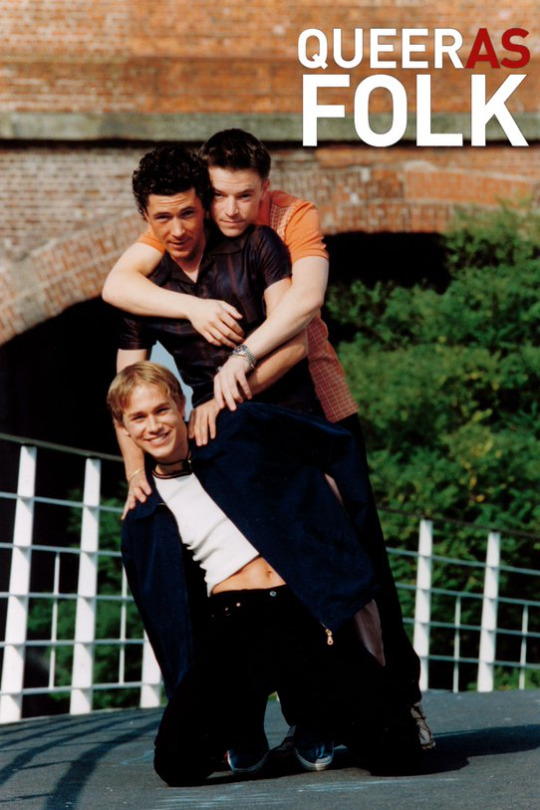
#tv shows#tv series#polls#queer as folk uk#aidan gillen#craig kelly#charlie hunnam#1990s series#british series#have you seen this series poll
69 notes
·
View notes
Text
On Therianthropy
or: How I Learned to Stop Worrying and Love the Label
As with all identity groups, the therian community has dealt with its fair share of misinformation, ignorance, and exclusivity throughout its storied history. For quite some time, I felt connected to the label—in that profound way when something just fits—yet, I wasn’t certain if I fit the bill. I had seen the common misconception that therians were limited to only “Earth animals.” There are many issues with this definition, and plenty of folks have gone over this already. This discussion between irritatedandroid and spiritus-sonne was one of the first posts I saw that gave me some background on this misconception, and it struck a chord with me.
As I began to look into it more, I kept finding challenges to what I thought I knew about therianthropy. Below is a snippet of the forum post that ultimately led me to identify with ‘therian’ as a werewolf rather than ‘otherkin.’
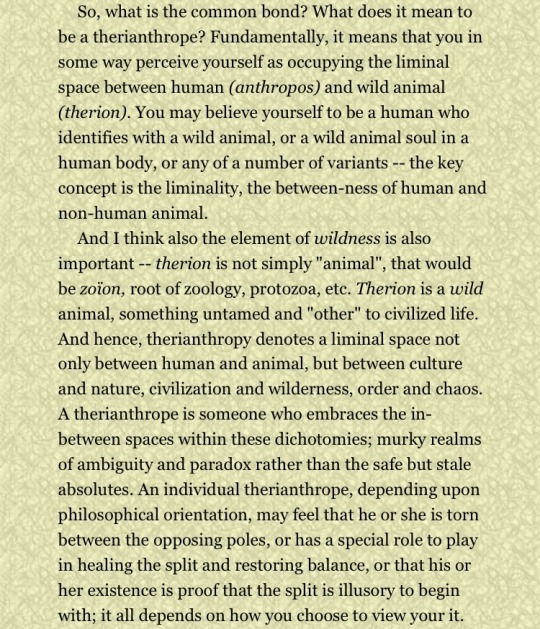
You can find the page right here if you’d like to check it out for yourself! The author is Lynna Landstreet/Lynx Canadensis at time of posting. (9/18/1999 on alt.horror.werewolves)
This might get a little lengthy, so here’s your courtesy readmore.
This word, ‘liminality,’ is everything that I am. Liminality, balance, breaking down false dichotomies—this is what it means for me to be a werewolf. As a quick disclaimer, there are almost certainly werewolves out there whose self-perception is similar to mine, but they use ‘otherkin’ instead. That’s completely fine! As who-is-page points out in this post, “While it’s important to understand the definitions of various labels for a variety of reasons, these labels are not the end-all be-all to what you can or cannot call yourself or identify yourself by.”
I’ve written previously about how my werewolf identity is deeply intertwined and ultimately inseparable from my queer identity and my experiences as an autistic person. I don’t just toe the line between person and animal—I practically live in the split tongue of therianthropy. I’ve made a home at the crossroads as an autistic, nonbinary butch who’s had top surgery and is on HRT, who rejects boxes and binaries like the plague.
I embrace the ways in which I challenge norms, call out injustice, ask “Why?” and “Why not?” of my society. It’s the reason I named myself Taliesin, after the influential Brittonic poet and bard. He lives on as a creative genius and master satirist, and—according to legend—a figure who can be invoked and channeled by poets who continue his legacy. I carry on the name of a trickster figure who connected with the universal creative spirit—the Awen—and aim to do the same myself whenever I create art of all kinds.
I see my own ‘purpose’ in life as self-defined, not fated, and I find strength in the fact that I can be part of an ever-shifting process of change. Above all, it is transformation—the divine lesson of The Werewolf—that lies at the heart of my therianthropy, and that’s pretty damn therian, isn’t it? The word resonates with me almost as much as my own name, and that’s enough for me.
I encourage all of us to consider how our language can help us understand each other, and how the hard-and-fast rules and restrictions proposed by even the most well-meaning folks can be counterintuitive. It’s not that any label can “just mean anything” — rather, labels can offer a general framework to describe and relate our experiences to others. A label should be the start of a sentence, not the period at the end.
I’ll close on my favorite part of Page’s post, linked above: “Identity is unique, it’s not something that can be charred well-done and then flipped into a tupperware container for tomorrow’s lunch.”
#alterhuman essays#nonhuman essays#therianthropy#therian#otherkin#alterhuman#alterhuman community#alt/non essays#alt/non community#LMAO SORRY FOR ALL THE TAGS#i try to keep this blog somewhat organized and this is a consequence of that
52 notes
·
View notes
Text
For a whole generation, this week marks the 25th anniversary of quietly tuning in to Channel 4 with the sound turned right down, in the desperate hope that it didn’t arouse suspicion.
Queer As Folk, Russell T Davies’ series about the lives of three gay friends, debuted in February 1999. It was a bold look at the heart of Manchester’s gay scene that provided something then rare in British television: a joyous exploration of what it meant to be gay.
“I vividly remember thinking: ‘Canal Street, does such a place really exist?’” says the BBC Radio 2 DJ Owain Wyn Evans. “It was a far cry from the head count of absolute zero role models or reference points available for me at the time in Ammanford, south Wales.”
The show has been celebrated as a pivotal moment of LGBTQ+ representation, but it wasn’t the only one. Here, notable LGBTQ+ people, including Joe Lycett, Juno Dawson and Alice Oseman, talk about the television that helped them.

Looking
Before All of Us Strangers, there was Looking. Launched in 2014, the HBO series following three gay friends in San Francisco was cancelled after just 18 episodes (and a feature-length special).
But it has aged like a fine wine. It feels remarkably human and captures beautifully the little things – such as when Patrick (Jonathan Groff) and Richie (Raúl Castillo) catch each other’s eyes on the subway for the first time. Or the heartbreaking way Kevin (Russell Tovey) rubs Patrick’s ears when he knows he is seeing him for the last time.
After years of being “othered” because of my sexuality, Looking was the first time I realised that I could – and should – experience the same highs (and lows) of romantic love as everyone else; that there is a world out there and I should explore it.
17 notes
·
View notes
Text
Shadow Meta Series: Technology, Time, and Horror
Okay, so I’ve spent the last week or so pouring over episodes 1-7 of Shadow looking at technology. I've also watching a few New Thai Cinema horror films and have been reading up on some big shifts that happened post 1997 in Thailand (hint: It's no accident the show is set in 1998/1999). Some things I think we’ll be able to dive in to much deeper on once we have the full show (just a few days more), but I thought I’d get some things down. I’m going to make this a series rather than one long post. But here’s a bit of my thinking!
On my first watch, it was pretty obvious that technology was being foregrounded through Josh. He constantly has the newest tech. My assumptions at this point were that technology was playing 3 roles:
A symbol of class differences
A potential Chekhov's gun whereby we learn something important about Trin or another part of the mystery through something Josh may have recorded
A way to root us in the time period
But a few things made me wonder if this was the full picture:
After writing my previous posts on narrative and art, I began wondering if there was any relationship between writing as a technology and the kind of tech Josh uses.
In having a conversation with some lovely folks over on discord, I realized it wasn’t just Josh using technology, at the very least Joe did too (and on doing a re-watch many others do too including brother Anurak)
I had a conversation with a friend about the aesthetic of Shadow. It came to my mind that it reminded me a lot of Ringu (1998), and since Ringu is ripe for thinking about technology in horror, I wanted to dig a little deeper. I kind of assumed this would end up being a "person whose only horror film is Ringu: Hey this reminds me of Ringu" moment. But it led me down some interesting research paths.
So in this series of posts I’m going to go into a few things:
Patterns I noticed of how different technology is being used in Shadow
How some of this connects to the Asian horror boom in the late 90s and early aughts, including within New Thai Cinema
How this ties into the importance of the show being set in 1998 within the context of a changing Thailand post the 1997 Asian financial crisis which reshaped many things including the framing around queerness
Note: I tried to take a broad definition of technology here. Not just cameras, computers, and phones, but also things like writing and art as human technology.
List of posts (I'll update as long as tumblr lets me):
*Note: Posts 1-3 were written before episodes 8-14 aired.
Post 1: Clocks and Masculinity in Shadow
Post 2: Trin, Technology, and Narrative
Post 3: Anurak and Old vs New Technology
Post 4: Clocks Part 2
Post 5: Anurak and Trin, Trauma and Power
#the first post will be up shortly just need to edit it#shadow#shadow the series#shadow the series meta#my posts#my meta
17 notes
·
View notes
Text
so, alright, here are the movies/MEDIA that make me go *oh shit I'm so bi, omg bisexual panic*
so, alright, here are the MOVIES that make me go *oh shit I'm so bi, omg bisexual panic* (it can be very bi-vibes movies or simply movies that make me feel how very deeply i love being bi, or the ones i just enjoy rewatching-not necessarily with bi/queer representation!) : Red, White & Royal Blue 2023 , The Mummy 1999, The Little Mermaid 2023, The Little Mermaid 1989, Anne Of Green Gables 1985, The Road to El Dorado 2000, Mulan 1998, The Cutting Edge 1992, Ten Inch Hero 2007, Better Off Dead 1985, Anastasia 1997, Rise Of The Guardians 2012, 10 Things I Hate About You 1999, Do Revenge 2022, Charlie’s Angels 2019, Bottoms 2023, Cadet Kelly 2002, Lemonade Mouth 2011, The Little Vampire 2017, John Tucker Must Die 2006, Pride and Prejudice and Zombies 2016, The Princess and The Frog 2009, The Addams Family 1991, Addams Family Values 1993, Atlantis: The Lost Empire 2001, The Favourite 2018, Challengers 2024, (+ will probably keep adding to this soon-ish)
+ edit TV SHOWS that my bi heart loves: One Tree Hill(OTH), Shadow and Bone, Roswell 90s(OG), White Collar, Reign, Mary & George, Heartstopper, Wild Cards, Living for the Dead, Warrior Nun, XO Kitty, Wednesday, Jurassic World Camp Cretaceous(JWCC) , Percy Jackson and the Olympians, Dawson's Creek, Vampire Academy, Willow, Dickinson, Heartbreak High, Teen Titans, Legacies, TheAddamsFamily(1964-1966), Love Victor, Lockwood&Co,
+ edit BOOKS/ BOOK SERIES that my bi heart absolutely LOVES:
Artemis Fowl Series by Eoin Colfer, Shatter Me Series by Tahereh Mafi, The Folk Of The Air Series by Holly Black, The Diviners Series by Libba Bray, The Devouring Gray Duology by C.L. Herman, GRISHAVERSE books (Six of Crows!!, Shadow and Bone, King of Scars-3 mini series) by Leigh Bardugo , This Woven Kingdom Series by Tahereh Mafi , Fallen Series by Lauren Kate, Elixir Series by Hilary Duff, The Cemetery Of Forgotten Books Series by C. R. Zafón, The Keys To The Kingdom Series by Garth Nix, Infinity Cycle Series by Adam Silvera, Anne Of Green Gables Series by L. M. Montgomery, Bloodlines Series & Vampire Academy Series by Richelle Mead, An Ember In The Ashes Series by Sabaa Tahir, The Selection Series by Kiera Cass + STANDALONES Lauren Kate-Unforgiven (standalone book in my opinion), Eoin Colfer- Airman, David Nicholls- One Day, Gayle Forman-Just One- Day & Year & Night (mini series), Vanessa Len-Only a Monster (mini series here too), Adam Silvera- History Is All You Left Me, Adam Silvera- They Both Die At The End , Adam Silvera- The First To Die At The End, Becky Albertalli-Imogen,Obviously, Mason Deaver- I Wish You All The Best(+short novella here!), Casey McQuiston-Red White&Royal Blue, Aaron H Aceves-This Is Why They Hate Us, Mason Deaver-The Feeling Of Falling In Love, Sophie Gonzales-The Law Of Inertia, H.E.Edgmon-The Witch King & The Fae Keeper (duology!) , H.E.Edgmon-Godly Heathens (mini series here!) , Carlos Ruiz Zafón- The Midnight Palace, Isabel Abedi- Whisper Haunted House, Francis Scott Fitzgerald- The Love Of Last Tycoon, Leo Tolstoy- Anna Karenina, S. E. Hinton- The Outsiders, Becky Albertalli & Adam Silvera-Here's to Us & What If It's Us (duology) (will keep adding here probably!)
+ about THE MUSIC:
love you all, we need MORE bisexuality in media!!
+some links:
#bisexuality#bisexuals#bisexual#bi#bisexual representation#bisexual pride#bi girls#bi books#bi boys#bi characters#bi lighting#bi love#bi mlm#bi wlw#bi panic#bi panic at its finest#bi pride#bi representation#bi rep#bi sapphic#bi thoughts#bi vibes#bi visibility#bi women#bi4bi#bi men#bi bi bi#bi tag#bi things#🩷💜💙
12 notes
·
View notes
Text
An excerpt from Eli Clare (1999) exploring the language used against and used by disabled & queer folk. TW for the r word.
_
"Handicapped, disabled, cripple, gimp, retard, differently abled. I
understand my relationship to each of these words.
I scoff at handicapped, a word I grew up believing my parents had invented specifically to describe me, my parents who were deeply ashamed of my cerebral palsy and desperately wanted to find a cure.
I use the word disabled as an adjective to name what this ableist world does to us crips and gimps.
Cripple makes me flinch; it too often accompanied the sticks and stones on my grade school playground, but I love crip humor, the audacity of turning cripple into a word of pride.
Gimp sings a friendly song, full of irony and understanding. Retard on the other hand draws blood every time, a sharp, sharp knife.
In the world as it should be, maybe disabled people would be differently abled: a world where Braille and audio-recorded editions of books and magazines were a matter of course, and hearing people
signed ASL; a world where schools were fully integrated, health
care, free and unrationed; a world where universal access meant
exactly that; a world where disabled people were not locked up at
home or in nursing homes, relegated to sheltered employment and
paid sweatshop wages. But, in the world as it is, differently abled,
physically challenged tell a wishful lie.
...
Queer, like cripple, is an ironic and serious word I use to de-
scribe myself and others in my communities. Queer speaks volumes
about who I am, my life as a dyke, my relationship to the dominant culture. Because of when I came out-more than a decade after the Stonewall Rebellion-and where-into a highly politicized urban dyke community-queer has always been easy for me. I adore its defiant external edge, its comfortable internal truth. Queer belongs to me. So does cripple for many of the same reasons.
Queer and cripple are cousins: words to shock, words to infuse with
pride and self-love, words to resist internalized hatred, words to
help forge a politics. They have been gladly chosen — queer by many
gay, lesbian, bi, and trans peoples, cripple, or crip, by many disabled
people. ..."
- Eli Clare in Exile and Pride: Disability, Queerness, and Liberation (1999)
#r slur#i debated censoring that word but it'll be easier for people who blacklist it if i don't.#also just as much as it isn't my word to reclaim i also don't think it's mine to censor when used by someone who's had it used against them#exile and pride#words words word#language#reclaiming words#disability#queerness#eli clare#quote tag
31 notes
·
View notes